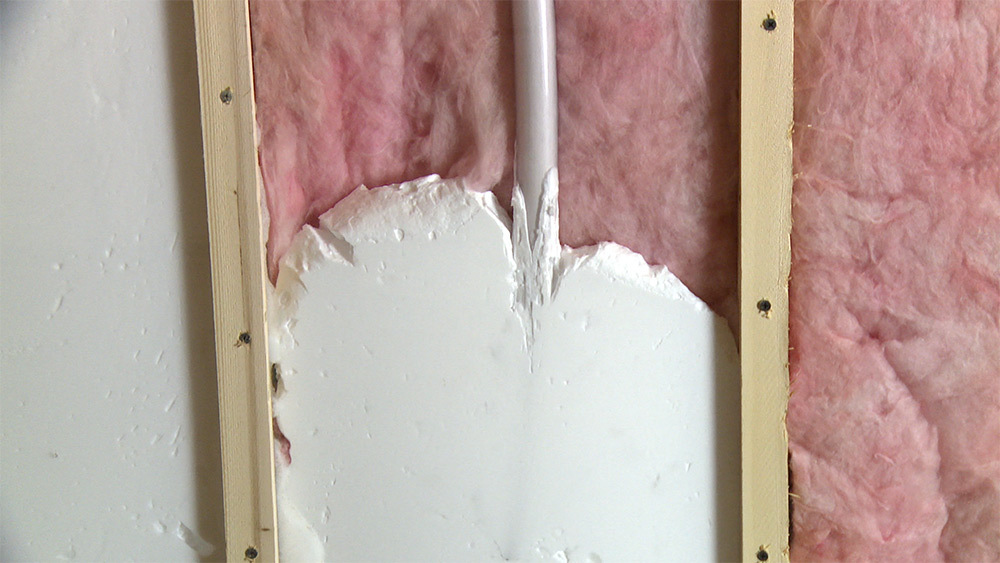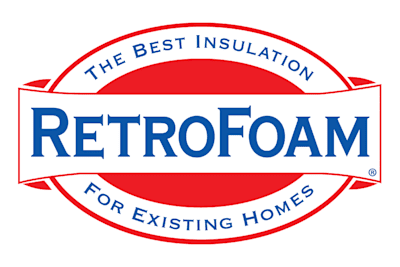Understanding Open Cell Spray Foam Insulation Problems
open cell spray foam insulation | spray foam insulation | foam university


When considering insulation for your home, open cell spray foam often comes up as a popular choice due to its efficiency and ease of application.
However, it's essential to delve into the complexities and challenges it presents. This comprehensive look at open cell spray foam insulation will help homeowners make informed decisions, ensuring their homes are not only comfortable but also more energy efficient.
Addressing Problems with Open Cell Spray Foam Insulation
Not all that glitters is gold.
While open cell spray foam is a great option for insulating open cavities thanks to the air seal it creates, if the material isn’t installed properly or it gets damaged from exposure, it can lead to some headaches.
Here’s what you need to know about what can go wrong with open cell spray foam insulation.
The Complexity of Overspray
Overspray is a primary concern when dealing with open cell spray foam.
Overspray is essentially the amount of splatter that happens when spraying the foam onto a surface. The rate at which open cell expands also factors into this because you could end up with a whole lot of foam where you don’t want it.
This overspray can become problematic, particularly in tight spaces or areas with intricate structures, as the foam may fill gaps and crevices, sometimes even spreading to adjacent areas if there is an opening.
The result can be a messy cleanup and potential structural issues if the foam expands into unwanted spaces.
It's crucial for installation teams to thoroughly inspect the site before application. This inspection includes understanding the layout of the area, identifying potential problem spots, and preparing for the foam's expansive nature.
The goal is to contain the foam within the designated area, ensuring it provides insulation without causing unintended consequences.
Fragility and Durability Concerns
While open cell spray foam is known for its insulation properties, it is also relatively fragile compared to other forms of spray foam insulation, like closed cell.
This fragility can be a double-edged sword.
On the one hand, its softness makes it easy to cut and shape, allowing for easy modifications and adjustments during installation. It is also easy to work with if there is a need to run wiring or fix plumbing.
However, this same characteristic can become a disadvantage in areas where the foam might face physical stress.
In places like pole barns, garages, attics, or basements where the foam is exposed and could come into contact with objects or be subject to pressure, its durability is a concern.
Homeowners need to be cautious about storing items against open cell spray foam or subjecting it to physical impact. This consideration is particularly important in environments where the foam could be bumped or compressed regularly, leading to deterioration over time.
Water Infiltration and Moisture Management
Another critical aspect to consider is the foam's interaction with moisture.
There are rumors all over the internet that claim all open cell spray foams will absorb water. While there are some open cell spray foam products on the market that will absorb some moisture. However, any experienced insulation contractor will use an open cell spray foam that doesn’t wick or absorb moisture.
With all of this being said, there are a few very specific situations in which open cell isn’t a good fit because of bulk water issues. If you have a crawl space or basement that is prone to flooding a few times a year or really any kind of water issues, open cell spray foam is not recommended.
In this kind of situation, it might be better to encapsulate the area than to insulate it.
Long-Term Considerations When Buying Spray Foam Insulation
When choosing open cell spray foam insulation, it's also important to consider long-term implications and best practices.
This type of insulation can significantly improve a home's energy efficiency, leading to lower heating and cooling costs. However, its effectiveness is contingent on proper installation and maintenance.
Homeowners should engage with reputable contractors who have experience and expertise in applying open cell spray foam. This expertise ensures that the foam is applied correctly, maximizing its benefits while minimizing risks like overspray and fragility damage.
Open cell spray foam insulation offers numerous benefits for homeowners looking for efficient and effective insulation solutions. However, understanding its challenges, such as overspray, fragility, and potential water infiltration, is crucial. By considering these factors and engaging with skilled professionals, homeowners can ensure that their insulation choice meets their needs and enhances their home's comfort and structural integrity.
As you weigh your insulation options, remember that the right choice depends on a combination of factors unique to your home and its environment. If you want to learn more about all things foam insulation, check out the Learning Center on our website.
Related Articles
What is Spray Foam Insulation?
What is the Difference Between RetroFoam Injection Foam and Spray Foam Insulation?
Installing Spray Foam Insulation in Metal Buildings When It’s Cold
About Eric Garcia
Eric brings his knowledge and training in building science, training in spray and injection foams from the manufacturers, more than eight years installing foam insulation, as well as selling and managing in the foam insulation industry. He is also BPI and Dale Carnegie certified and has taken several building science courses, including air sealing and building envelope. Eric is the Professor of Foam on our educational YouTube series Foam University. Even when Eric is off he is usually still “working” or thinking about work, but when he can get away he enjoys camping, hiking, hunting, and woodworking.


